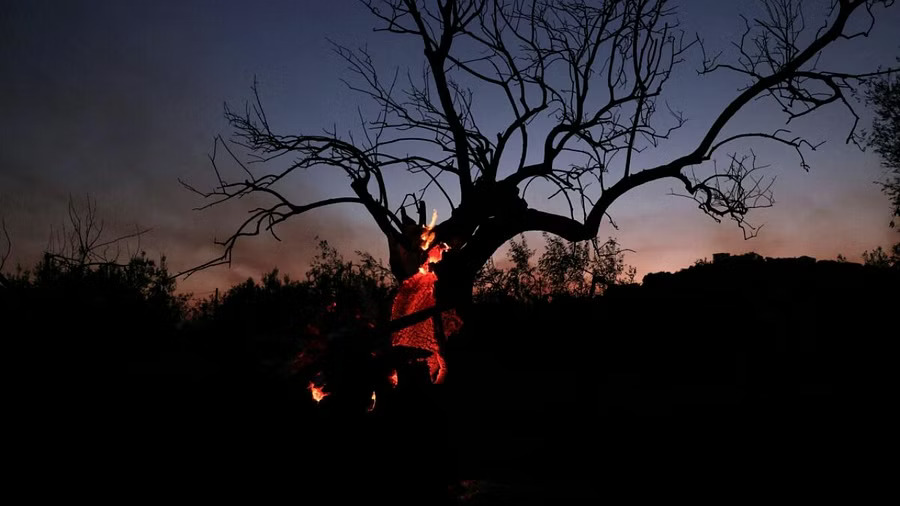The connection between climate change, heatwaves, and wildfires in Europe has become increasingly evident as scientific research sheds light on the intricate relationship between these phenomena. A recent analysis explores how the changing climate is fueling more frequent and intense heatwaves and wildfires across the continent, raising concerns about the long-term impact on ecosystems and communities.
Heatwaves have become a recurring challenge in Europe, causing health risks, water shortages, and strain on energy resources. Researchers emphasize that climate change plays a central role in amplifying these extreme heat events. Rising global temperatures are a direct consequence of the accumulation of greenhouse gases in the atmosphere, primarily driven by human activities.
As temperatures rise, the likelihood of heatwaves intensifies, and these heatwaves contribute to conditions conducive to wildfires. Dry vegetation becomes more susceptible to ignition, and the combination of prolonged high temperatures, low humidity, and strong winds can result in rapid fire spread. Such wildfires pose threats to biodiversity, air quality, and human settlements.
The analysis points out that the increasing frequency of heatwaves and wildfires underscores the urgent need for robust climate adaptation and mitigation strategies. Efforts to limit global warming and reduce greenhouse gas emissions are crucial in curbing the severity of these events. Additionally, adopting fire prevention and management practices can help mitigate the impact of wildfires.
Scientists emphasize that addressing the complex interplay between climate change, heatwaves, and wildfires requires international collaboration and coordinated action. Policymakers, scientists, and communities must work together to develop strategies that not only respond to immediate crises but also focus on long-term resilience and sustainability.
The impacts of climate change are not limited to physical damage; they also have broader implications for ecosystems, economies, and social well-being. Vulnerable populations, including the elderly, children, and low-income communities, are disproportionately affected by heatwaves and wildfires, making equitable solutions a priority.
The analysis serves as a reminder that the consequences of climate change are not distant or abstract—they are unfolding in real time, affecting communities and ecosystems across the globe. By acknowledging the link between climate change, heatwaves, and wildfires, societies can work toward developing adaptive strategies that protect both human lives and the environment.
As Europe grapples with the challenges posed by changing climate patterns, the analysis urges a proactive approach that combines scientific knowledge, policy measures, and community engagement to build resilience and secure a sustainable future for generations to come.










